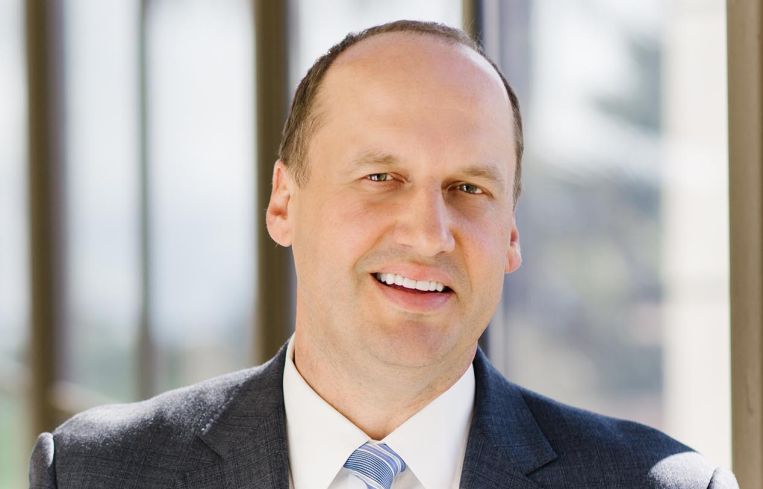Presented By: Partner Insights
Industry Spotlight: Q&A with KBS’ Marc DeLuca
By Partner Insights September 9, 2019 12:51 pm
reprints
KBS is one of the largest owners of premier commercial real estate in the nation. Since inception, KBS-affiliated companies have completed transactional activity of approximately $40 billion via 16 separate accounts and six commingled funds, for government and corporate pension funds. Additionally, KBS has sponsored five sovereign wealth funds and seven SEC-registered, non-traded REITs. Commercial Observer’s Partner Insight’s team sat down with Marc DeLuca, Regional President, Eastern Region of KBS Realty Advisors, to discuss the state of lending.
Commercial Observer Partner Insights: How does foreign investment in the U.S. differ today compared to previous cycles?
Marc DeLuca: Traditionally, foreign institutional investors have focused on core gateway markets such as New York, Chicago, and San Francisco, among others. Recently, we have seen a shift in focus towards secondary and tertiary markets where foreign investors are in search of higher yield.
For example, we recently sold 6Y, a best-in-market, newly repositioned creative office property in Portland to Deka Immobilien, a global real estate investment firm headquartered in Germany.
We were ahead of the curve in realizing Portland’s value and have been extremely active in the market for the last several years. We now own 553,500 square feet in the region including the Meier & Frank building, an iconic office asset in downtown Portland.
Most economists say an economic downtown is a matter of if, not when. How are you preparing?
DeLuca: As one of the largest and most proactive owners of commercial properties across the U.S., we are always working to strategically protect our portfolios from an economic downturn.
We make sure our portfolios are geographically diversified, the tenants in our buildings and in our overall portfolio are diversified across industries, and that our debt is diversified, incorporating both fixed and floating rates.
We have had tremendous success with renewing and extending leases for some of our biggest tenants and we think that’s a good sign. However, we’re not limiting ourselves from capitalizing on ongoing rent growth and rental increases if it becomes apparent there is still significant runway left in the cycle.
Regardless, we take a conservative approach to our investment strategies to ensure that our assets can weather any storm over the long term.
As 2019 comes to a close, what are the top three trends you’re keeping your eye on?
DeLuca: There are several trends impacting the sector this year that we are actively monitoring. A few of these trends include:
- Data
There is an increasing amount of information available and access to this information continues to become easier and easier for asset managers.
We collect our own data. We conduct a yearly survey of all of our tenants where we gather their views of the amenities at the property, the services, the staff, their likelihood for renewal or expanding, among several other items. We then take the results to determine where changes or improvements need to be made. We also sit down with the broker any time a large tenant decides not to renew or move to find out how we can improve for the next tenant.
- Accommodating Delivery Services
Last year food delivery service increased 20 percent That coupled with the growth of online shopping, and we are seeing major changes in the way we deal with delivery services.
At KBS, we took a forward-looking approach and partnered with a company, Foodie, a few years ago. We’ve built specific areas into the lobby for the food to be dropped off. There can be upwards of 20-plus restaurants that deliver to an office building a day. With employees tied up in meetings or calls, this creates a seamless drop-off process that prevents the lobby from being filled with stacks of delivery bags.
We’ve also seen an overall increase in delivery packages, so we have increased the size of mail rooms, and often, incorporate refrigerated and freezer space to keep up with the shift towards online goods. Tenants receive a text code to access delivered goods from the space.
- Shared Transportation
In any major city today you’ll find rented scooters lining the streets. Because these programs allow individuals to scan and rent a bike or scooter, ride it to a location, and essentially drop it off anywhere, many of these now end up dropped off and stacked up in front of a property.
As a property owner we are creating specific sections within our properties to accommodate shared transportation programs. These types of programs have already become widely popular in dense urban areas throughout the east coast, and we anticipate this trend to continue to spread throughout other parts across the country.
Closing Thoughts?
DeLuca: Tenants of all generations are demanding live-work-play environments. Everyone want to be in areas that provide quick and convenient access or walkability to local grocery stores, Starbucks, restaurants, shops, etc.
Areas like North Hills, North Carolina, and Reston, Virginia, are prime examples of this. These markets are extremely walkable with easy access to surrounding retail and entertainment.
In fact, Advanced Auto Parts recently announced the relocation of its headquarters to the downtown North Hills, North Carolina, region, citing the region’s 24/7 lifestyle as one of its major indicators for relocating.
Finally, while there has been a lot of discussion surrounding a downturn, the fact is that there is still a tremendous amount of opportunity in the market. We are actively acquiring assets across the country. Because KBS positions its investments conservatively, working to increase value and protect against potential downturns, there are opportunities regardless of where we are in a particular economic cycle.
Join Marc DeLuca and other top CRE finance professionals at the 3rd Annual Washington, D.C. Financing CRE Forum on September 26, 2019. Click here for more information.



